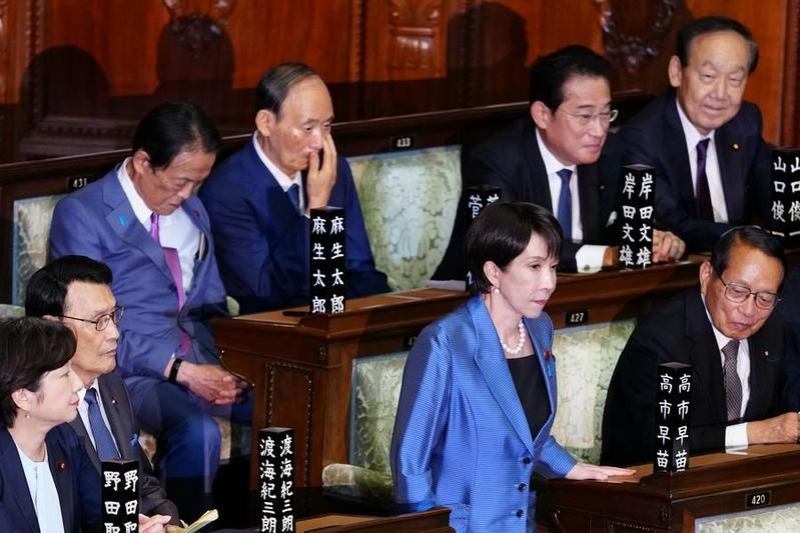Defining transformation
Rise of the Global South set to advance the formation of a new model of the international order


The collective rise of the Global South stands as the defining hallmark of contemporary global transformation. This ascent constitutes the essential substance of worldwide restructuring, fundamentally reconfiguring its nature. Simultaneously, the Global South acts as the primary engine of this transformation, shaping its trajectory through four critical manifestations.
First, the Global South advances global developmental rebalancing. Its emergence has narrowed the development gap with advanced economies. Profound shifts in the North-South power dynamic are reflected in the International Monetary Fund 2024 data: Global South economies now account for 60.1 percent of global GDP (purchasing power parity-adjusted) — 1.5 times the share of developed economies. World Bank statistics further reveal obvious income convergence: low-income nations declined from 30 percent (1987) to 12 percent (2023) of all countries, while high-income economies rose from 25 percent to 40 percent.
Global South nations have forged development models fundamentally distinct from historical Western paradigms. On the one hand, they seek self-determined development. Unlike Western nations whose primitive capital accumulation relied on violent plunder and colonial exploitation of other nations, Global South economies leverage their resources endowments, labor forces and market scale, achieving growth without imposing development costs on others.
On the other hand, they are pioneering an eco-synergistic development pathway that advances intergenerational equity. Western nations historically pursued a carbon-intensive industrialization trajectory during their formative development phase. Conversely, contemporary Global South states pioneer integrated development-environmental governance frameworks, preventing exploitative depletion of natural ecosystems.
Second, the Global South champions the democratization of international relations. For a long time, Western countries have leveraged their advantages to dominate other nations within this sphere. The rise and expansion of the Global South, however, has strengthened efforts to advance this democratization. In international relations, Global South nations champion three cardinal principles: the sovereign equality of all states regardless of size, strength or wealth; collective deliberation on global affairs through multilateral frameworks; and shared stewardship of humanity's future.
These principles are enshrined in landmark declarations. The Ministerial Declaration of the G77's 60th anniversary in September 2024 reaffirmed the adherence to the purposes and principles of the United Nations Charter, international law, national sovereignty, territorial integrity, political independence and non-interference in internal affairs. The Kazan Declaration of the 16th BRICS Summit in October 2024 reaffirmed "support for a comprehensive reform of the UN, including its Security Council, with a view to making it more democratic, representative, effective and efficient".
Simultaneously, the Global South remains committed to advancing a new model of international relations centered on win-win cooperation. During his March 2013 visit to Russia, Chinese President Xi Jinping proposed that "all countries should work together to foster a new type of international relations focused on win-win cooperation, with people of all nations joining hands to uphold world peace and promote common development". As a key member of the Global South, China has consistently championed this vision.
In practice, the launch of the Belt and Road Initiative exemplifies this commitment. The initiative steadfastly adheres to the principle of "extensive consultation, joint contribution and shared benefits", embodying the Silk Road Spirit of peaceful cooperation, openness, inclusiveness, mutual learning and mutual benefit. This provides a vital platform for building a new framework for international relations. Furthermore, the BRICS cooperation mechanism — collectively established by China and fellow Global South nations — consistently upholds the BRICS spirit of openness, inclusiveness and win-win cooperation, serving as an exemplary model for advancing this new paradigm of international relations.
Third, the Global South is promoting greater equilibrium in global governance. Its rise has, to some extent, redressed imbalances in global governance rights, fostering more balanced development of decision-making power. This shift is clearly manifested in the enhanced voting shares and representation secured by Global South nations within key international organizations.
For instance, after the World Bank's capital increase in 2018, China's voting share rose by 1.26 percentage points, increasing its total stake to 5.71 percent and cementing its position as the institution's third-largest shareholder after the United States and Japan. At the IMF, China's share of Special Drawing Rights has also continued to grow. Following the renminbi's formal inclusion in the IMF's SDR basket on Oct 1, 2016, with an initial weighting of 10.92 percent, the currency's share increased to 12.28 percent after the latest SDR valuation review in May 2022. On UN reform, the Global South's call for expanded representation has likewise gained tangible traction.
Concurrently, the ascent of the Global South has promoted a more equitable distribution of responsibilities in global governance. Climate governance exemplifies this dynamic: historical data reveal disproportionately higher cumulative greenhouse gas emissions from Western nations relative to Global South countries. For a long time, these Western nations evaded historical accountability by focusing exclusively on current emissions growth while disregarding legacy emissions of greenhouse gases. The expanding influence of the Global South, however, has compelled these countries to progressively assume proportionate international responsibilities commensurate with their entitlements.
Despite constraints in financing and technology that render parity with developed countries' emissions reduction targets unfeasible, the Global South actively undertakes responsibilities aligned with its capacities. This principle of differentiated responsibilities was codified in December 2015 through the Paris Agreement adopted at COP21 to the UN Framework Convention on Climate Change. The landmark accord establishes: Developed countries must take the lead in emissions reduction and may implement gradual reduction targets according to national circumstances, and the Least Developed Countries and Small Island Developing States may formulate context-specific strategies based on their distinctive vulnerabilities.
Fourth, the Global South is enhancing civilizational diversity. Encompassing nations across Asia, Africa and Latin America, it integrates diverse linguistic, religious, ethnic and cultural spheres — manifesting profound civilizational diversity. This inherent heterogeneity has emerged as a defining feature of Global South cooperative frameworks.
The G77 — established in 1964 as the Global South's primary intergovernmental body for development coordination — has expanded from 77 founding members to 134 members, with representation spanning Africa, Asia-Pacific, Latin America and the Caribbean. Concurrently, the BRICS mechanism stands as a testament to this civilizational polyphony.
Simultaneously, the Global South's rise has further advanced the diversification of global civilizations. Since the Age of Exploration began in the 15th and 16th centuries, Western nations successively embarked on colonial expansion. This process led to the marginalization and intrusion of Western civilization upon others, ultimately establishing its dominance worldwide. However, following World War II, as numerous countries across Africa, Asia and Latin America gained independence, this Western-dominated order gradually eroded. Countries of the Global South effectively resisted the impact of Western civilization.
The rise of the Global South has also unlocked new avenues and opportunities for mutual learning among diverse civilizations. On the one hand, leveraging South-South cooperation mechanisms, these nations continually deepen cultural exchanges among themselves, fostering genuine civilizational dialogue and mutual enrichment. On the other hand, the diverse cultures and civilizations of the Global South also offer valuable insights — and serve as a source of learning — for Western nations.

The author is a professor at the School of International Politics and Economics at the University of Chinese Academy of Social Sciences and a research fellow at the National Academy of Chinese Modernization at the Chinese Academy of Social Sciences. The author contributed this article to China Watch, a think tank powered by China Daily.
Contact the editor at editor@chinawatch.cn.

































